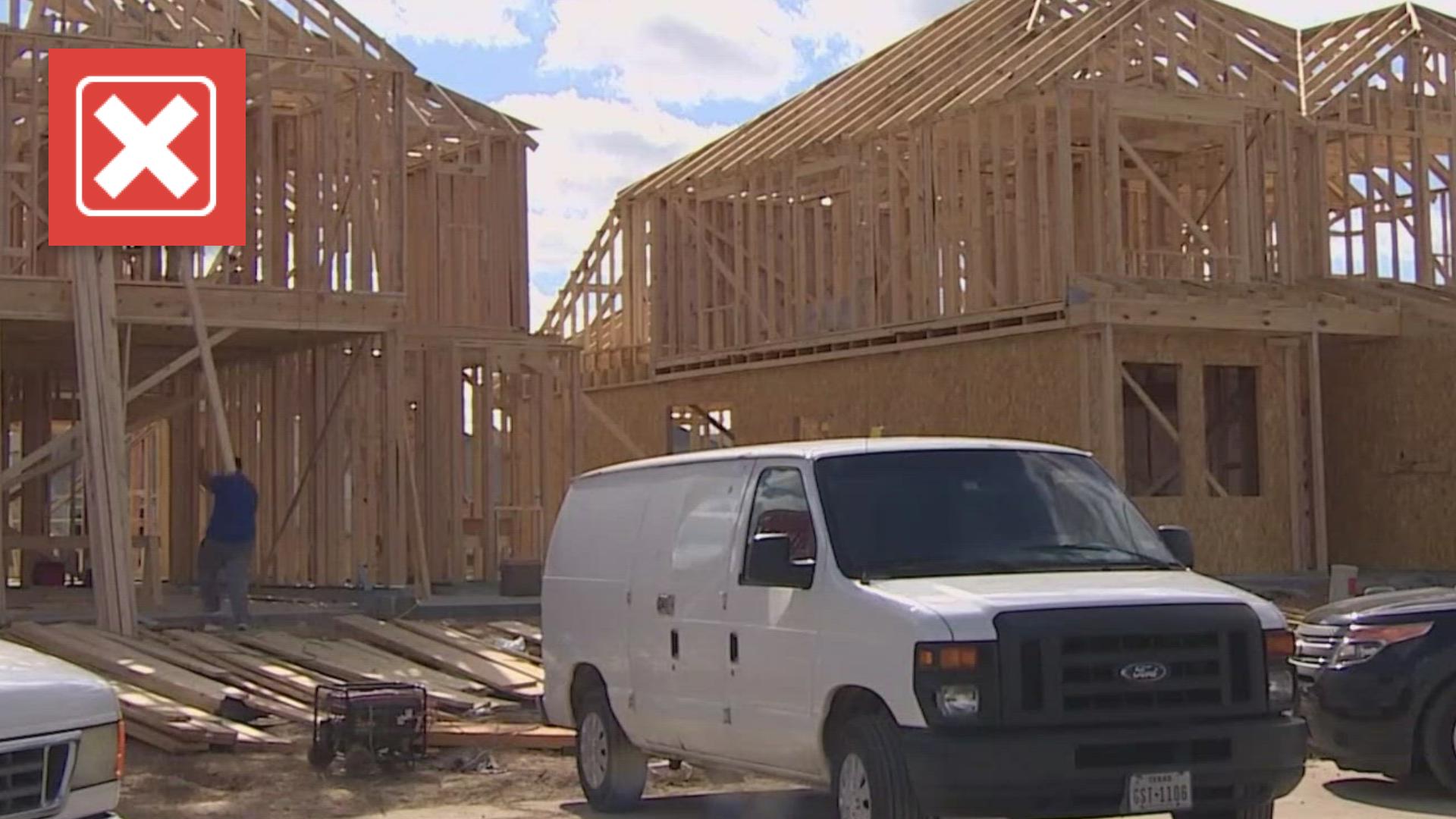HOUSTON — In comments on a viral video of a framed home collapsing in Willis during the May derecho, there are several claims about Texas' building codes. A month before the video of the collapse was captured, a national report ranked Texas poorly mainly because the state lacked code enforcement for residential structures on the state level. The KHOU 11 Verify Team learned from the Texas Association of Builders, who took part in forming the state's current legislation, that residential building codes are governed on a local level.
THE QUESTION
Does Texas have a statewide enforced residential building code?
THE SOURCES
Insurance Institute of Business and Home Safety (IBHS)
Texas Association of Builders
International Code Council
Texas Local Government Code
THE ANSWER
No, Texas does not have a statewide enforced residential building code however, Texas does require municipal codes.
WHAT WE FOUND
"Unfortunately, there's a lot of confusion and misunderstanding about how building codes in Texas work," said Ned Muñoz, former Vice President of Regulatory Affairs and General Counsel of the Texas Association of Builders.
According to Texas law, cities are required to adopt codes, but counties can opt out.
The KHOU 11 Verify Team contacted 11 different counties and found some have decided to opt out of adopting codes for residential structures, as they are allowed to do in Texas. In these counties, the Texas Association of Builders CEO, Scott Norman tells the KHOU 11 Verify Team via phone, "In these areas, there are more inspections."
The KHOU 11 Verify Team found cities, that are required to have residential building codes, have adopted codes ranging from 2012 to 2021.
"The differences between the code editions recently have been to improve the energy efficiency of homes," Norman told us.
Adopted building codes are traditionally taken from the International Code Council (ICC). The association is the largest of its kind for building safety professionals according to its website. ICC releases building codes for several structures including residences every three years with a new edition in 2024.
"The code book is several inches thick," Muñoz said. "You have the international residential code for one and two-family homes and townhomes, and then you have the international building code for everything else."
The International Residential Code (IRC) is not the same as the International Building Codes (IBC) also released by ICC.

